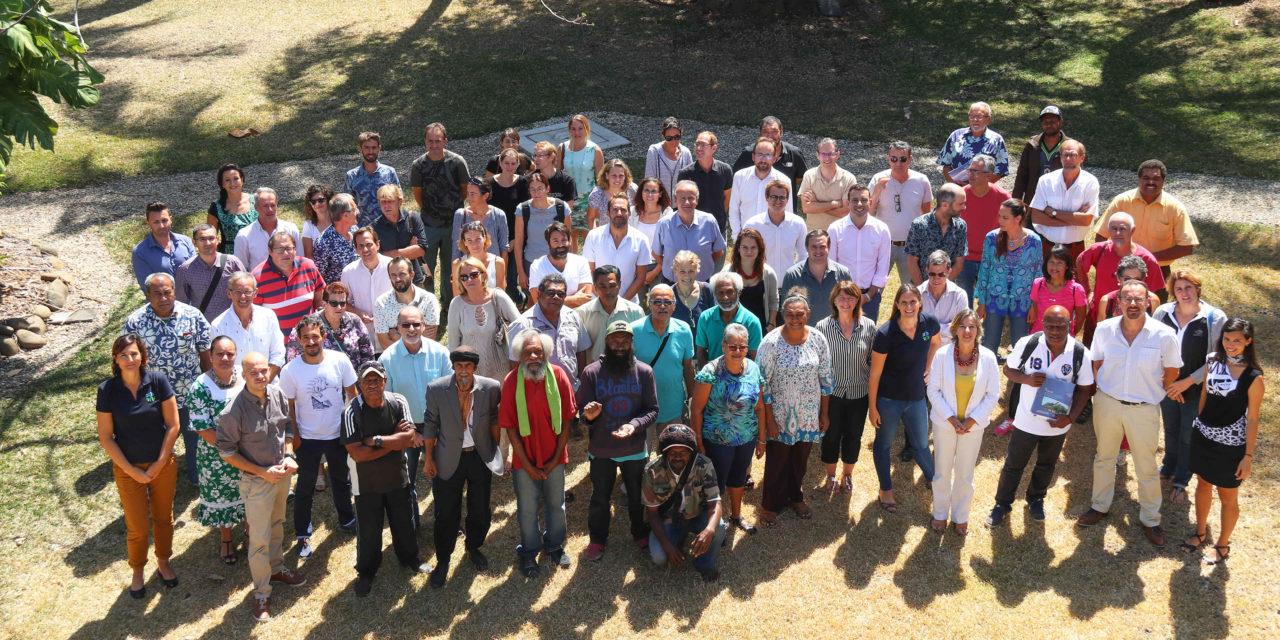The INTEGRE and RESCCUE projects of the Pacific Community (SPC) organised with the WWF in New Caledonia an event with more than 80 attendees on the theme “From forests to the tap: exchanges on forest management to secure water resources” on Friday 15th of September from 8.30 a.m. to 12.00 p.m..
Professionals from different administrations, the private sector, associations and custom representatives have exchanged on the issues, threats and possible solutions to protect forests, which play a key role in securing drinking water resources. Having healthy forests is crucial to ensure soil stabilization and water infiltration as forests form an integral part of the water cycle. However, the WWF warns that more than 90% of protection perimeters of water catchment areas, directly supplying drinking water to New Caledonian communities, are currently in a degraded state, or highly degraded state. Forest surfaces are indeed reduced and fragmented, due to the main threats of forest fires, deforestation and degradations caused by invasive species (wild deers and feral pigs).
Discussions revolved around the state of scientific and technical knowledge and on solutions and actions implemented on the ground in New Caledonia, the goal being to promote the approach of integrated management. This is the angle taken by the projects INTEGRE and RESCCUE of SPC, which allows to tackle several issues at the same time in order to maximize results.
Pilot actions implemented on the ground in Touho by those two projects were detailed in order to protect and restore a drinking water catchment area supplying 8 local communities or “tribus”. Technical and Financial support was brought to the communities to secure and control the state of the water resources which is often spoilt by sediments coming from soil degradation caused by the populations of wild deers and feral pigs. As such, a device for monitoring erosion was put in place, degraded areas have been restored with plantations of indigenous species and the local hunting association of Tipwoto was supported to regulate invasive species populations.
Moreover, as the 2017 fire season has officially started in New Caledonia, the INTEGRE and RESCCUE projects continue to support the New Caledonia Government and South Province in their work to prevent forest fires in the Great South: on the one hand, by assisting public policy making in elaborating and implementing the local fire-control plan, and on the other hand, by supporting local actions of awareness raising and early detection systems thanks to a special mobile unit deployed on the ground.
As a conclusion to this event, it was reinforced that it is necessary to continue current efforts to converge towards integrated and participatory management of forests and drinking water, which are vital and valuable resources, to the benefit of local communities.
